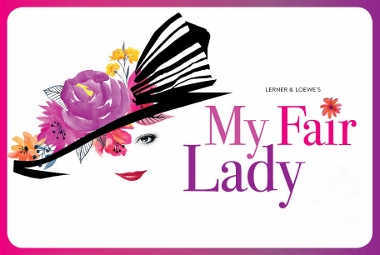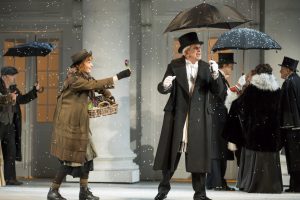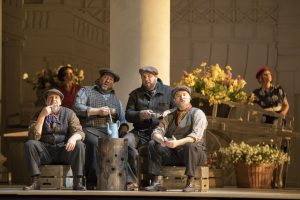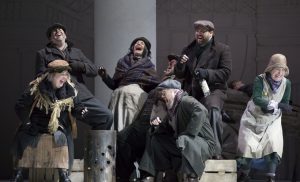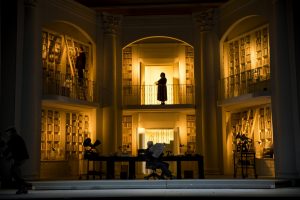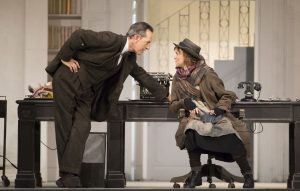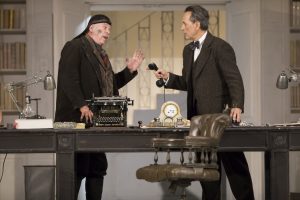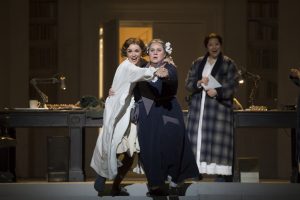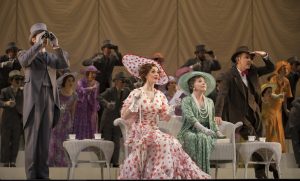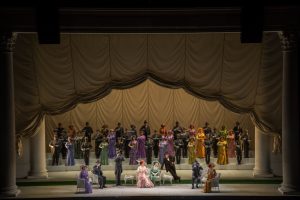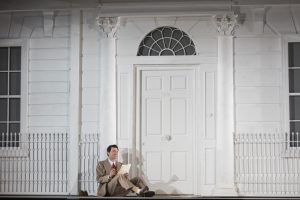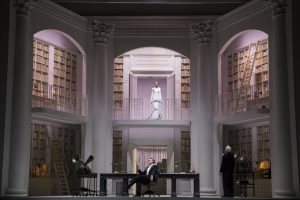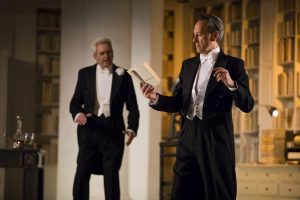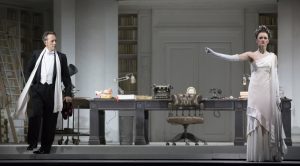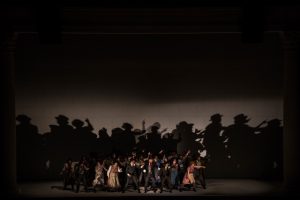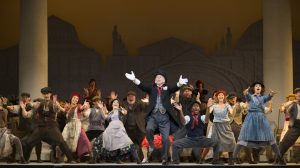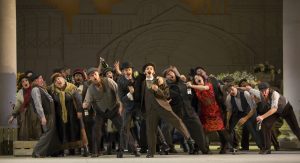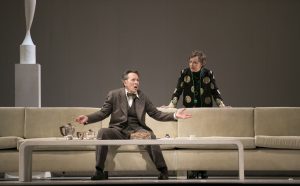STILL THE FAIREST OF THEM ALL
This reviewer has a confession to make: I don’t particularly like musicals. I’ll happily laugh at the jokes and delight in the dancing, but the style of music isn’t my favorite. That’s why I prefer opera. But something about My Fair Lady grabbed me from the get-go: its language. The musical is chock-full of language jokes, plays on words, and the most gratifying turns of phrase, as well as a range of British accents, from the most pretentiously upper crust to the commonest Cockney. In sum, My Fair Lady is an Anglophile’s aphrodisiac.
Based on George Bernard Shaw’s play Pygmalion (adapted from classical mythology), the 1956 musical features book and lyrics by Alan Jay Lerner and music by Frederick Loewe. The titular heroine begins the story as a filthy street urchin hawking flowers outside London’s Covent Garden. Linguistics professor Henry Higgins and Col. Pickering are so intrigued by her that they concoct a plan whereby Higgins will correct her accent and turn her into a society lady. Higgins succeeds in making her so attractive that he even falls in love with her, despite his misogyny, eccentricity, and class prejudice. Perhaps what is more surprising is that she loves him (at least in this adaptation — Shaw left it as ambiguous).
Lyric Opera’s immensely enjoyable production boasts an accomplished cast led by Richard E. Grant as Henry Higgins and Lisa O’Hare as Eliza Doolittle. Grant brings decades of acting experience in cinema, television, and theater to his role, giving it everything he’s got and more. It’s a bravura performance that never misses a beat, a step, a facial expression, or a gesture–all executed with aplomb. In contrast to Grant’s character whose hybrid singing style is more akin to speaking, O’Hare’s actually has some beautiful lines to sing, for which audiences can be especially grateful, for she has a beautiful, clear voice and excesses of charm. Her transformation from duckling to swan is truly astonishing.
One of the other fine voices in the cast belongs to Bryce Pinkham as Freddy Eynsford-Hill, a society lad smitten with Eliza post-transformation. His lyrical singing of “On the Street Where You Live” is one of the most poignant moments of the production. Eminently enjoyable in a rather different way is Donald Maxwell as Eliza’s ne’er-do-well-turned gentleman Alfred P. Doolittle, whose comic rendition of “Get Me to the Church on Time” isn’t easily forgotten.
Director Robert Carsen’s production was originally created for Paris’ Théâtre du Châtelet. While Tim Hatley’s set design comes across as rather monochrome, it transparently and elegantly evokes London without detracting from Anthony Powell’s sumptuous costumes, such as Eliza’s chic ball gown or her whimsically matching polka-dot dress, parasol, and hat. The comfortable pace of the production and smooth set changes contribute to making this fair Lady a stunning success and high note on which to end a remarkable season.
photos by Todd Rosenberg and Andrew Cioffi
My Fair Lady
Lyric Opera of Chicago
Civic Opera House, 20 N. Wacker Drive
ends on May 21, 2017
for tickets, call 312.827.5600 or visit Lyric Opera
for more shows, visit Theatre in Chicago
